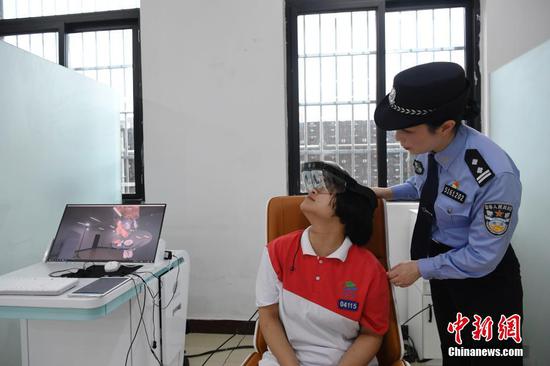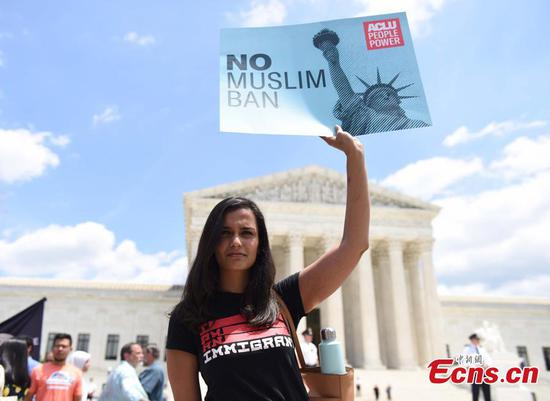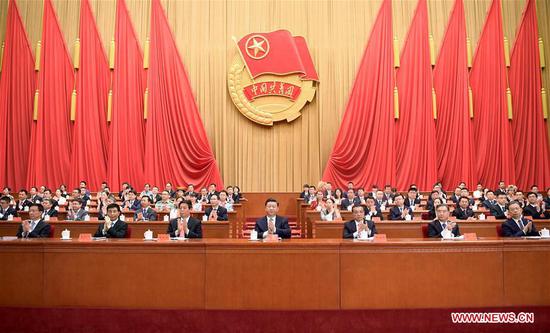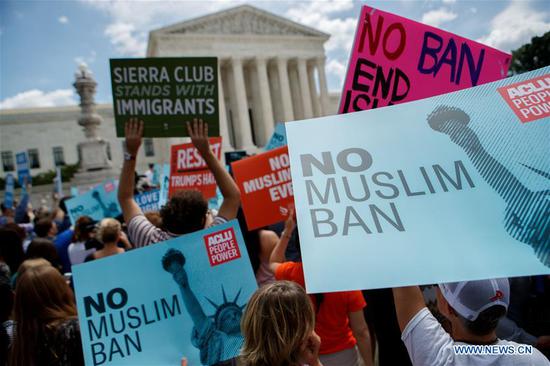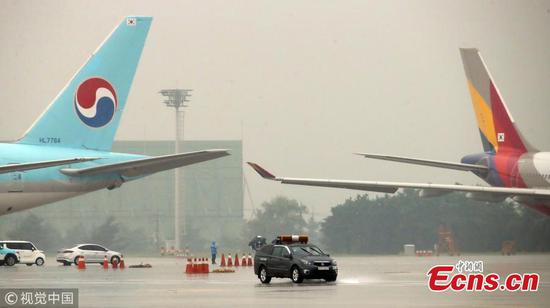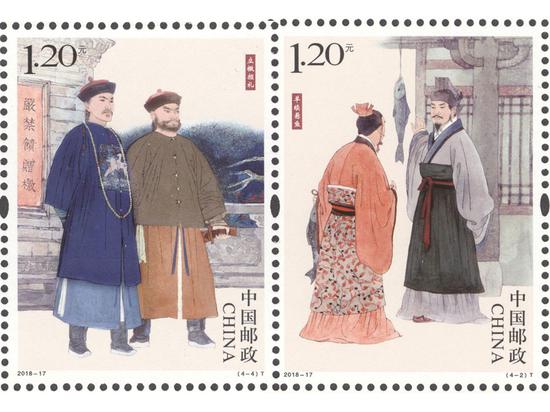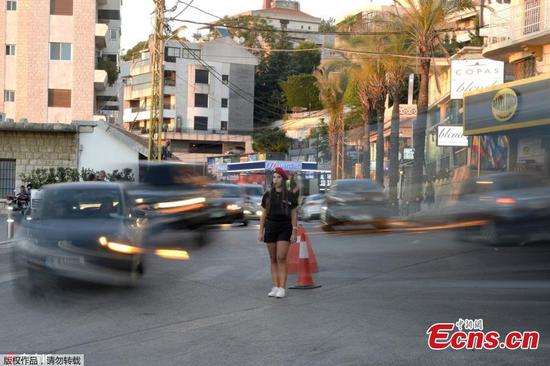Supreme Court, in 5-4 vote, gives president victory, upholds travel restrictions
With the Supreme Court handing U.S. President Donald Trump a judicial victory on Tuesday by upholding a travel ban on seven countries, observers pondered his next move on the immigration front.
The 5-4 ruling, with conservative justices in the majority and liberal justices dissenting, ended a legal battle over whether the policy amounted to an unlawful restriction of Muslims as it confirmed broad presidential powers over immigration and national security policy.
Five of the countries in the ban - Iran, Libya, Somalia, Syria and Yemen - have Muslim-majority populations. The ban also affects travelers from DPRK and some Venezuelan government officials and their families.
A sixth majority-Muslim country, Chad, was removed from the list in April after improving "its identity-management and information sharing practices", Trump said then.
"Immigrant rights advocates said the travel-ban ruling is bound to fortify Trump's conviction to accelerate the administration's efforts to choke off legal avenues for refugees, foreign students and temporary workers, all of whom have been confronted with new hurdles for entry," David Nakamura wrote in The Washington Post.
Roy Beck, president of NumbersUSA, a group that seeks reduced immigration, said the advocates' strategy was to try to delay Trump in court, a tactic his own group has used to defeat "amnesty" proposals for undocumented immigrants.
"But today is maybe emblematic of what's coming down the line," Beck said. "We may be able to expect to see more actually happening."
Trump hailed Tuesday's ruling as "a moment of profound vindication" following "months of hysterical commentary from the media and Democratic politicians who refuse to do what it takes to secure our border and our country".
Lower courts had blocked the travel ban, announced in September, as well as two prior versions, in challenges brought by Hawaii and others. The Supreme Court had allowed the ban to go largely into effect in December.
The ruling empowered Trump at a time when he faces controversy over his approach toward illegal immigration along the U.S.-Mexico border. Trump last week retreated on his administration's practice of separating the children of immigrants from their parents when families were detained entering the U.S. illegally.
The court held that the challengers had failed to show that the travel ban violated either immigration law or the Constitution's First Amendment prohibition on the government favoring one religion over another.
In remarks at the White House, Trump hailed "a tremendous victory for the American people and for our Constitution".
"We have to be tough, and we have to be safe, and we have to be secure. At a minimum, we have to make sure that we vet people coming into the country," the Republican president said, referring in a statement to "this era of worldwide terrorism and extremist movements bent on harming innocent civilians".
Chief Justice John Roberts said that Trump's administration "has set forth a sufficient national security justification" to prevail. "We express no view on the soundness of the policy," Roberts added.
The ruling affirmed broad presidential discretion over who is allowed to enter the United States. Trump could potentially add more countries to the ban.
"Under the court's Trump-specific analysis, just about any official indignity that unduly burdens the lives of minorities or marginalized groups within our borders may well be tolerated," Cristian Farias wrote on the New York magazine website.
The challengers had argued that the policy was motivated by enmity toward Muslims and urged courts to take into account Trump's comments during the 2016 presidential campaign. Trump as a candidate called for "a total and complete shutdown of Muslims entering the United States".
"This decision will someday serve as a marker of shame," said Democratic Representative Keith Ellison of Minnesota, the first Muslim elected to Congress.
He and Senator Mazie Hirono of Hawaii, who was born in Japan, both compared the ban and the ruling to the internment of Japanese-Americans during World War II.
In a dissent, Justice Sonia Sotomayor cited "stark parallels" with the court's now-discredited 1944 decision that upheld U.S. internment of Japanese-Americans during World War II.
"Taking all the evidence together, a reasonable observer would conclude that the proclamation was driven primarily by anti-Muslim animus," Sotomayor added.
Roberts said it was "wholly inapt to liken that morally repugnant order (of 1944) to a facial neutral policy denying certain foreign nationals the privilege of admission".
"The ruling will go down in history as one of the Supreme Court's great failures," said Omar Jadwat, a lawyer for the American Civil Liberties Union.
The Supreme Court ruled that the policy has "a legitimate grounding in national security concerns", and it has several moderating features, including a waiver program that would allow some people from the affected countries to enter the U.S., Roberts said.














